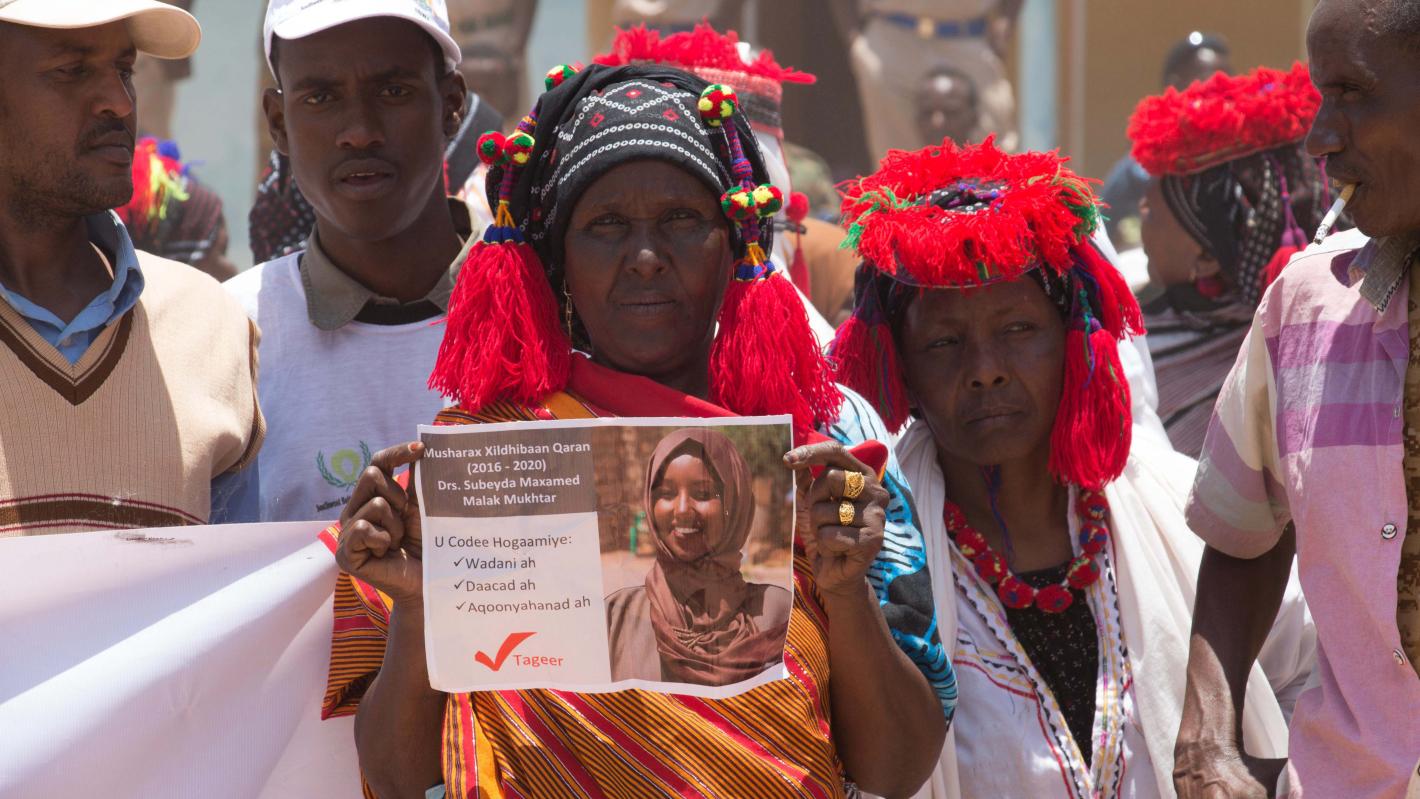Preparations for the 2016 electoral process are picking up as Somalia prepares to choose parliamentary representatives, in an exercise that will culminate in a presidential poll in late October.
Candidates for seats in the lower house of the country’s next federal parliament have already hit the ground running, drumming up support among clan elders, religious leaders and other influential members of their communities.
A visit to some of the country’s major cities shows that electoral process preparations are now in full swing.
In Baidoa, candidates campaigning for various parliamentary seats have erected posters in an effort to win the backing of clan elders and electoral college delegates.
Subaida Haji Muktar, a female candidate for parliament, is readying herself for the process. A newcomer to politics, Ms Muktar says education, job creation and women’s health will be her key priorities if elected.
Another female candidate named Samra Ibrahim Omar cited the 30 per cent quota for women in both houses of the next federal parliament as one of her motivations to join politics, and she urged women to take up the leadership challenge.
According to Siid Ali Abukar, the Deputy Head of Registration of the State Indirect Electoral Implementation Team (SIEIT), for the Interim Southwest Administration (ISWA), the registration of electoral college delegates is proceeding smoothly.
“We have already provided orientation to traditional elders on criteria for selecting the delegates. We have also received lists of many delegates who will elect the members of parliament from their respective clans. The team is continuously reviewing delegates submitted to ensure the criteria agreed upon have been met”, Mr Abukar said.
The electoral process regulations stipulate that 275 electoral colleges consisting of 51 delegates each will choose members of the lower house of parliament. Sixteen of the 51 delegates are supposed to be women, 10 will be youths and the remaining 25 will be drawn from the wider community, including members of civil society.
State assemblies will elect most of the 54 members of the upper house of parliament.
Suldan Warsame Suldan Alio Ibrow, one of the 135 traditional elders charged with selecting electoral college delegates, said the main thrust has focused on ensuring that the 30 per cent quota for women’s representation in parliament is achieved.
“The traditional elders welcomed the international community, the Federal Government and the National Leadership Forum’s push for the 30 per cent quota for women. As a result, of every three seats allocated to each clan, one will automatically be contested by women only,” explained Mr. Ibrow.
Mr Abukar said venues have been identified where the electoral colleges will meet and adequate security put in place.
“Election venues and security plans have all been firmed up. ISWA authorities are very much focused to ensure elections are held. Despite time constraints, everything is going well and on track. We are positive that we will have a successful process,” he added.
In Mogadishu, the head of the federal body charged with oversight of the electoral process has made assurances that the process will stay on course, despite a few still unresolved issues.
“The electoral process is still on schedule. The issue of establishing an electoral dispute resolution committee has been resolved but there are other outstanding matters. For example, the deployment of AMISOM troops to Cadaado, Somaliland’s lack of preparedness for the electoral process and identifying an electoral center for Hiiraan and Middle Shabelle regions. Those are technical issues that require political decisions, and which are under consideration,” said Omar Mohamed Abdulle, the Chairman of the Federal Indirect Electoral Implementation Team (FIEIT), during a visit to a police academy in Mogadishu.
Sixty-nine Federal MPs will be chosen in Baidoa, while the remaining 206 MPs will be selected in Garowe, Kismaayo, Mogadishu, Cadaado and a yet-to-be-identified location in Hiiraan and Middle Shabelle regions.
A total of 14,025 electoral college delegates drawn from various segments of Somali society will elect the 275 legislators for the lower house of parliament.






